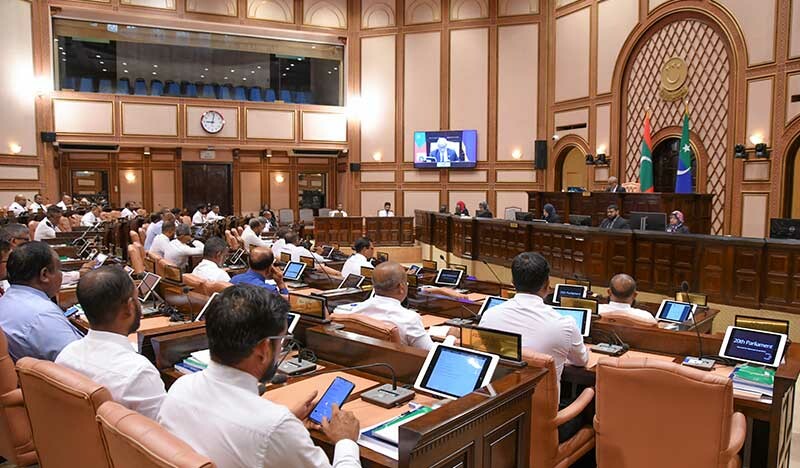Parliament Passes Bills Amending Criminal Procedure Act and Penal Code

Parliament has passed two bills amending the Criminal Procedure Act and the Penal Code, each aimed at addressing gaps in the legal system and adapting to evolving challenges in criminal justice.
The first bill, which introduces new provisions for postponing sentence execution and granting bail to convicted individuals pending appeal, passed with 58 votes in favour and no opposition. The amendments fulfil a presidential pledge to refine the appeal and bail process.
Under the new law, individuals convicted by a lower court can apply for bail during the appeal process in two scenarios:
- The individual has been sentenced to imprisonment.
- The individual has lodged an appeal against the conviction or sentence.
However, the law prohibits bail during the appeal stage for convictions involving:
- Intentional homicide.
- Assault causing serious injury with a weapon.
- Child sexual abuse, terrorism, and drug trafficking.
- Acts undermining the independence and sovereignty of the state.
- Offences designated as non-bailable under other laws.
Applicants for bail must provide:
- Reasonable grounds for their appeal.
- Assurance of compliance with bail conditions if released.
- Evidence that their detention is not required in the public interest.
Judges are required to consider factors such as prior breaches of bail conditions, potential harm to victims, the preparation of the defence, and the risk of escape.
The bill addresses delays in obtaining trial reports by stipulating that the 60-day appeal period begins only once the report is received. In cases of delay, appellants must notify the High Court in writing before the deadline expires. Other amendments include:
- Extending the timeframe to prove delays caused by uncontrollable circumstances from two months to six months.
- Increasing the prosecution’s deadline to appeal pretrial motion decisions from two days to ten days.
Penal Code Amendments
In a separate but equally critical move, Parliament also approved amendments to incorporate cybercrime offences into the Penal Code. This bill also passed unanimously with 58 votes.
The amendments include the following cyber-related crimes:
- Unauthorised access to computer systems.
- Unauthorised interference with computer systems, whether to facilitate other offences or otherwise.
- Unauthorised interception of computer data.
- Misuse of devices.
- Acts of cyber violence, including creating images, sounds, or animations to blackmail individuals or children.
- Computer-related forgery and fraud.
- Infringement of computer-related rights.
- Supporting Changes
- The new cybercrime offences necessitated corresponding updates to the Criminal Procedure Code to align enforcement mechanisms.
The passage of these bills represents a significant step forward in addressing systemic delays and legal challenges in the justice system. By refining the bail process and tackling the rising threat of cybercrime, the amendments aim to enhance public confidence in the rule of law and modernise the nation’s legal framework.







